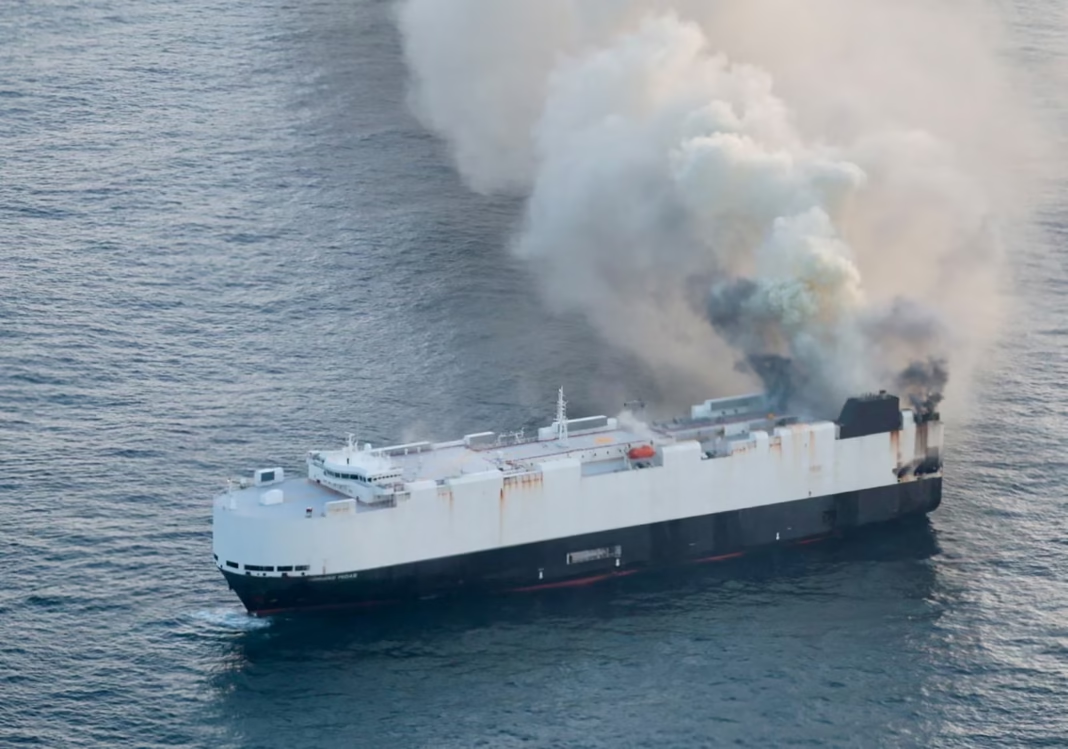In a significant maritime disaster, a cargo ship carrying more than 3,000 vehicles including approximately 800 electric and hybrid cars sank in the Pacific Ocean on June 23, 2025. The vessel, Morning Midas, went down roughly 360 nautical miles off the coast of Mexico after battling fire and severe damage for weeks.
According to Reuters, the Panama-flagged ship was en route from a major Chinese port to Mexico when a fire broke out on one of its lower decks on June 6. The blaze, believed to have started in a section storing electric vehicles, raged for several days and severely weakened the ship’s structural integrity.
The lithium-ion batteries powering many of the EVs on board are suspected to have played a role in the ignition and rapid spread of the fire. Lithium-ion battery fires are notoriously difficult to extinguish and can burn for days under extreme temperatures.
All 22 crew members aboard the Morning Midas were safely evacuated by a Japanese rescue vessel shortly after the fire intensified. No casualties were reported, thanks to the swift coordination between maritime safety authorities from Japan, Panama, and Mexico.
Despite firefighting efforts and salvage support dispatched by the shipping company, the vessel could not be stabilized. Ultimately, it sank to a depth of approximately 5,000 meters, carrying its entire cargo — including electric vehicles, hybrids, and a variety of luxury and commercial automobiles — to the ocean floor.
Environmental experts are now expressing concern about the potential ecological impact of the sunken ship. The International Maritime Organization (IMO) has launched a probe into possible fuel leakage and battery contamination, given the hazardous materials onboard.
The incident echoes previous high-profile maritime losses, such as the Felicity Ace fire in 2022, where over 4,000 luxury vehicles, including EVs from brands like Porsche, Audi, and Bentley were destroyed when the ship caught fire and sank in the Atlantic.
Shipping experts say this latest disaster raises new questions about the safety protocols surrounding the transportation of electric vehicles, particularly regarding battery isolation, fire suppression systems, and cargo deck design. With global EV sales expected to rise dramatically over the next decade, the maritime shipping industry may face increasing pressure to adapt to new safety standards.
This loss also comes at a time when global automotive supply chains are grappling with demand pressures, and the loss of thousands of vehicles some destined for dealership lots in North America could have ripple effects on regional inventories.
Authorities continue to monitor the sinking site for any signs of pollution or floating debris that could pose threats to marine traffic and ecosystems in the region.




